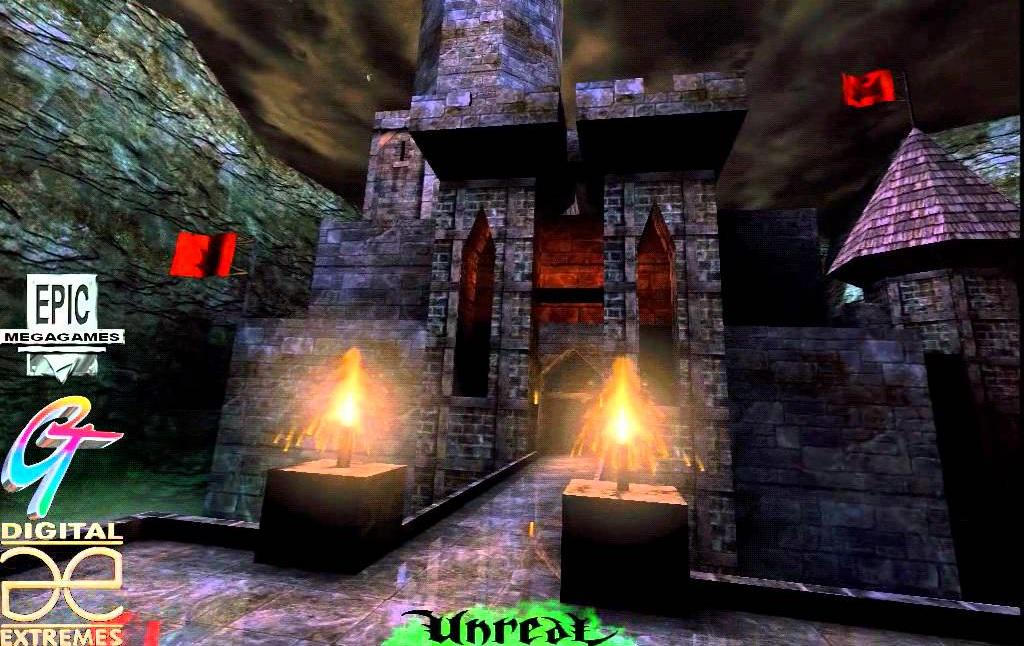Unreal 1: From Player to Developer

Unreal 1: The Game That Shaped Things
Unreal 1 holds a special place in my heart—not just as a game, but as a pivotal experience that shaped my entire interest in game development. I first encountered Unreal back in the late '90s, during its initial release, and from the moment I loaded it up. Back then I wasn’t just playing games—I was immersing myself in them. The game didn’t just introduce me to new gameplay; it opened the door to an entirely new world of possibilities.
The Start of My Unreal 1 Adventure
I remember picking up my copy of Unreal 1 from the EB Games bargain bin around the game’s launch. It was about $5 or $10, because the original CD case had a crack from shipping, but everything else was pristine. At the time, I was running the game on an old Pentium 2, and needless to say, it wasn’t quite enough to get Unreal 1 running smoothly. So, I scavenged together a second-hand Compaq Pentium 3 system and paired it with a 3DFX Voodoo4 4500 AGP graphics card. That was my first taste of truly pushing hardware to its limits, and let me tell you, the 3DFX Voodoo4 4500 felt like a beast back then.
"When I say scavenged, I mean it–I didn't have much money, I found part of that computer through dumpster diving behind a second-hand PC shop."
Running Unreal on that rig was a challenge, but it made the early gaming moments that much more rewarding. The graphics, expansive environments, and the sense of immersion in the world felt like nothing else at the time.

Unreal wasn’t just a game to play—it was an experience that felt ahead of its time. The feel of each weapon, the dynamic combat, and the world design all came together to create something truly unforgettable. And what really stood out was how, even though combat was a major focus, the game still offered so much more. It was a world I could get lost in.
The Leap Into Modding
Very early on, I wasn’t just playing through the campaign. I dove into the community, downloading every player-made map pack and custom campaign I could find. But eventually, I wanted to create something of my own. That’s when I met "Crow", a random guy who hopped into my server while running a Co-Op map pack. Together, we started developing mods and maps for Unreal 1—mods that weren’t just tweaks but aimed to bring something unique to the table. We didn’t just want to change a few textures or mess with stats; we wanted to understand how the engine worked and push its boundaries. We also spent hours talking to randoms in our server to gauge their thoughts and get some user feedback about all of it.

We spent countless hours researching how Unreal’s engine operated, exploring the ins and outs of UScript, and figuring out what made other developers tick. I even started emailing developers at Epic Games to try and learn from them. The responses were mixed—some were generous with resources and advice, while others barely gave me the time of day. But I wasn’t discouraged. Persistence became my mantra.

Crow and I spent a lot of time working on custom bots that had AI far above what was standard at the time. Looking at them now would seem primitive, knowing what AI is like now. Some of our bots even had voice lines (yes, the "Vulgarian class" is a thing, and it was glorious), which made the game feel more immersive, depending on the situation.
A Community That Challenged
The Unreal 1 community wasn’t without its challenges. Like many early gaming communities, there were moments of intense toxicity, and this persisted even into the game's life post-2000's. But despite all of that, I found a group of passionate and talented people who were willing to share knowledge, collaborate, and push the limits of what the game could do. We exchanged feedback, shared resources, and helped each other grow. The support I received from fellow modders and players helped me develop my skills and pushed me to do things I didn’t know I was capable of.

The Unreal community was a place where ideas that were outside of the scope of a normal "first-person shooter" of the time, thrived. Despite occasional script kiddies and unwarranted chaos. I owe much of my early creative growth to the people I met there.
A Stepping Stone
Unreal wasn’t just a game to me—it was a launchpad for everything that followed. It ignited my full interest for game development, and more-so texture design & 3D modeling. From modding to scripting, to custom music creation, and even crafting unique AI (not like the AI now, obviously).
Speaking of custom music creation, there is a tutorial from way back that I had created on how to convert WAV/MP3 to Unreal's .UMX format. You can check it out if you have interest by clicking here. This method works with most Unreal 1 Engine games from the time.
Despite all the new technologies and tools I’ve worked with, there’s still a part of me that longs to go back to Unreal 1 and Unreal Tournament 99'. Those games, and the engine they ran on, will always hold a special place in my heart. Times back then were more difficult in some ways, but so much better in the simplicity sometimes, and I miss that.

Someday, I might even come back and run a server again— applying the skills and knowledge I've gained over the years to bring something back, and something new to these timeless classics.

Got any memories of the old Unreal that you want to share? Maybe we even knew each other, it's possible! Reach out!
🔫Unreal Name: RedemptionAD
🔱Clan: [**PHX**] Clan Phoenix
📩Email: [email protected]!
